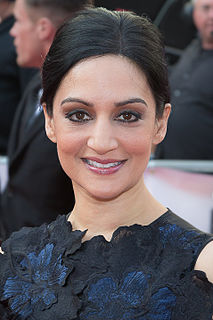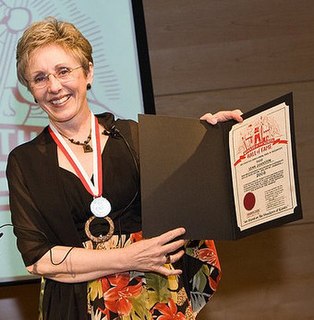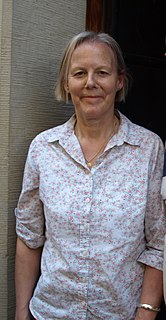A Quote by Hilary Mantel
[Margaret Thatcher] said there was no thing such as society. This is what I find so interesting psychologically. Where did she come from? She had no mother. Her father came from a very identifiable background: religious, highly conformist.
Related Quotes
Media hosts just talk about Golda Meir and Margaret Thatcher and again miss the point. I was talking about AMERICAN culture, ladies and gentlemen. As I pointed out, if Margaret Thatcher or Golda Meir, by the way, she didn't care, and Margaret Thatcher didn't care how she look like. If Margaret Thatcher were running for president today, as she was when she was the Iron Lady, we wouldn't have her mom doing television commercials telling us how wonderful she was when she was a kid and how nice she is.
I was doing an interview with Charlie Rose and he said, "What do you think about Margaret Thatcher?" - and I had not heard she had died at this point - and he said, "Is there any kind of Shakespearian overtone here?" I said, "Well, actually, Julius Caesar, because ever if a politician was stabbed in the back, it was Mrs. Thatcher, by all her conspiratorial cabinet, which really did just stab her in the back." It's a rather interesting resonance.
I've known a lot of very religious people. My mother is very religious, but she was also very - is very private about it. She - when I was growing up, she never went to church. She just prayed and read her Bible and kept it to herself. So I'm not from a background of flamboyant believers. It's much more a personal issue.
The idea of the book ["The Japanese Lover"] came in a conversation that I had with a friend walking in the streets of New York. We were talking about our mothers, and I was telling her how old my mother was, and she was telling me about her mother. Her mother was Jewish, and she said that she was in a retirement home and that she had had a friend for 40 years that was a Japanese gardener. This person had been very important in my friend's upbringing.
[Short Talk on Sylvia Plath] Did you see her mother on television? She said plain, burned things. She said I thought it an excellent poem but it hurt me. She did not say jungle fear. She did not say jungle hatred wild jungle weeping chop it back chop it. She said self-government she said end of the road. She did not say humming in the middle of the air what you came for chop.
One of my mentors was Patricia Schroeder, and one night she came to me on the floor and she said to me, "Why are we sitting in Congress, when a lot of women would try to do it and couldn't? Why are we here and others aren't?" And I thought back and said it was because my father believed in me and she said the same thing, she said her father believed in her and thought she could do anything.
One thing I did have under my belt was, my mother lost her mother when she was 11. She mourned her mother her whole life and made my grandmother seem present even though I never met her. I couldn't imagine how my mom could go on but she did, she took care of us, she worked two jobs and had four children. She was such a good example of how to conduct oneself in a time of grief. When I lost my husband, I tried to model myself as much as I could on her.


































